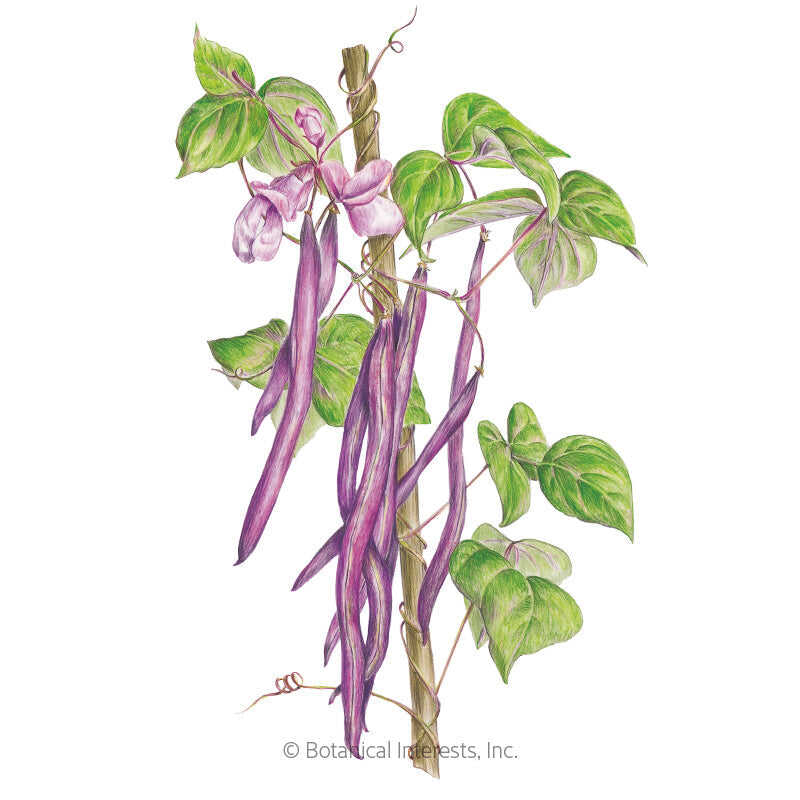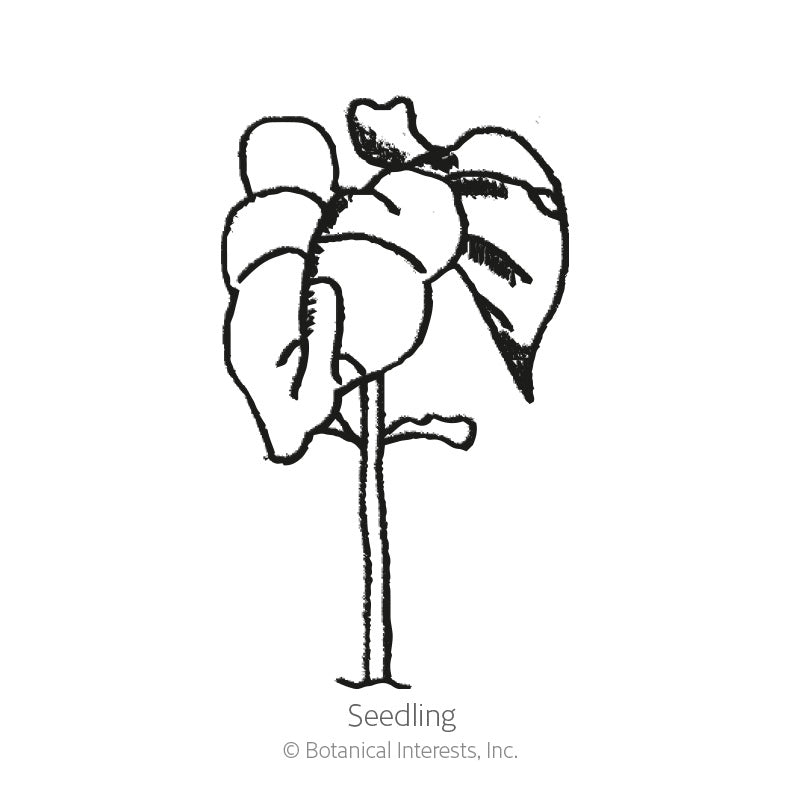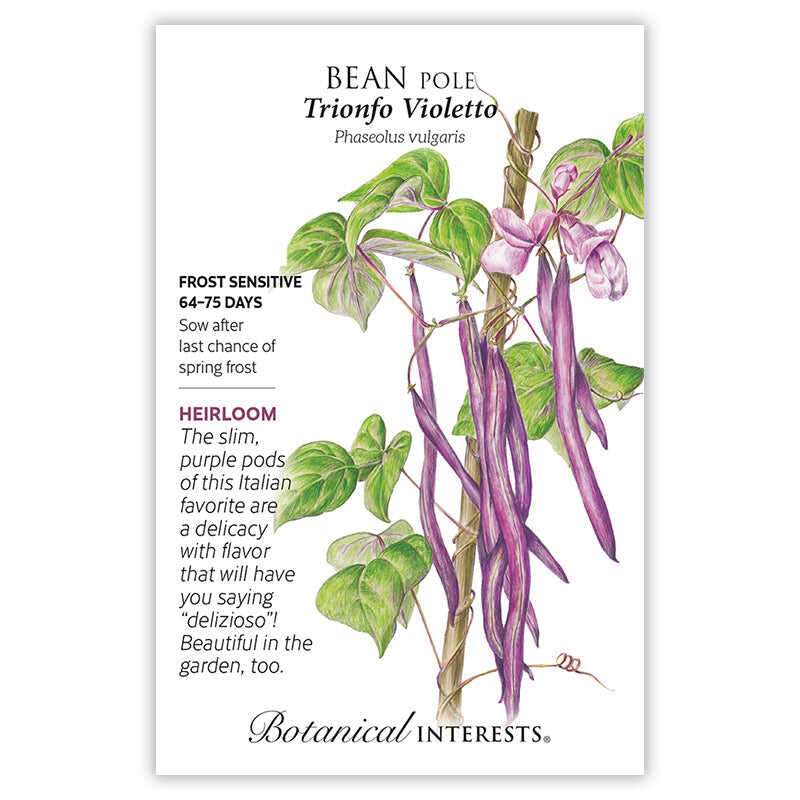


- Variety Info
- Sowing Info
- Growing Info
- Learn More
Variety Info
Days to Maturity: 64–75 days
Family: Fabaceae
Type: Snap Bean, Pole Bean (Learn More)
Native: Mexico and South America
Hardiness: Frost-sensitive annual
Exposure: Full sun
Plant Dimensions: 6'–8' vigorous vines
Variety Info: 6"–8" long, thin, deep purple, stringless when young, oval-round pods with tan seeds. Beans turn green when cooked.
Attributes: Frost Sensitive

Sowing Info
When to Sow Outside: RECOMMENDED. 1 to 2 weeks after your average last frost date, and when soil temperature is at least 65°F, ideally 70°–85°F. Successive Sowings: Every 7 to 14 days up to 80 days before your average first fall frost date. NOTE: In very hot summer areas, skip sowing as high heat approaches; temperatures consistently above 90°F will prevent beans from forming.
When to Start Inside: Not recommended; bean seedlings are sensitive to root disturbance.
Days to Emerge: 6–12 days
Seed Depth: 1"
Seed Spacing: 1 seed every 6"
Row Spacing: 36"
Thinning: Not required
Your hardiness zone is
Growing Info
Harvesting: Snap beans are ready to pick when the pod "snaps" or breaks in half cleanly. This is when seeds have just begun to form and the pods are several inches long (depending on the variety). Hold stem with one hand and the pod with the other hand to avoid pulling off branches, which will continue to produce. Harvesting early and often will stimulate flower production for more beans. At season's end, plants are great compost material if they are disease-free.




